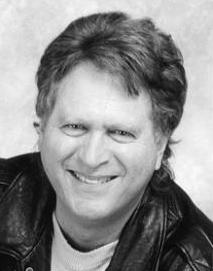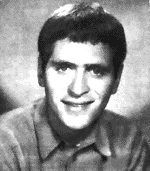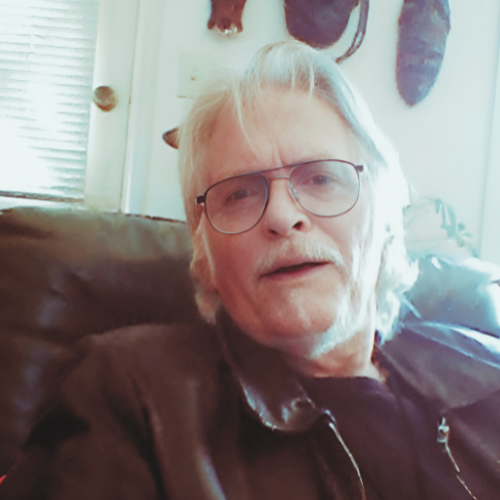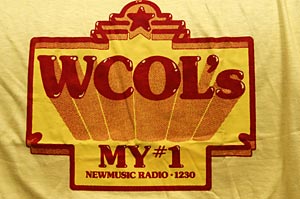In the electrifying world of 1970s and 1980s Top 40 radio, where disc jockeys were the unsung heroes scripting the daily drama of American pop culture, Bobby Ocean stood out as a master storyteller. With a velvet-smooth delivery that could pivot from playful banter to poignant reflection in a heartbeat, Ocean didn’t just play the hits—he made them feel personal. Born Ernest Raymond Lenhart on November 12, 1944, in a modest Midwestern family of seven siblings, Ocean’s path to the airwaves was paved with ambition and serendipity. Leaving behind his large family for the sun-drenched promise of California radio, he built a five-decade legacy that earned him a 2013 induction into the Bay Area Radio Hall of Fame. Today, at 80, the man affectionately dubbed “What a Guy” by peers continues to lend his iconic voice to the industry, proving that some legends never fade.
Born Ernest Raymond Lenhart on November 12, 1944, in a modest Midwestern family of seven siblings, Ocean’s path to the airwaves was paved with ambition and serendipity. Leaving behind his large family for the sun-drenched promise of California radio, he built a five-decade legacy that earned him a 2013 induction into the Bay Area Radio Hall of Fame. Today, at 80, the man affectionately dubbed “What a Guy” by peers continues to lend his iconic voice to the industry, proving that some legends never fade.
Ocean’s broadcasting journey ignited far from the glamour of the West Coast. Fresh out of high school in 1963, the 19-year-old from Illinois hopped a bus to Panama City, Florida, where he landed his debut gig at WDLP as midday DJ “Ray Farrell.” It was humble work—spinning records in a small-market outpost—but the thrill of connecting with listeners hooked him instantly. “I left a large family of six brothers and a sister for an all-California radio career,” Ocean later reflected, a decision that defined his life. By late 1963, he had migrated westward to Monterey’s KMBY, hosting nights as “Radio Ray Farrell” and immersing himself in the vibrant California scene that would become his lifelong stage.
The mid-1960s saw Ocean honing his craft in the Bay Area’s smaller markets, where he could experiment without the pressure of major leagues. At KKIS in Pittsburg, he juggled mornings and mid-days under personas like “Captain Turntable” and continued as Radio Ray Farrell, drawing on his natural charisma to build a local following. These years were formative, teaching him the art of seamless transitions and audience engagement amid the era’s evolving Top 40 sound. But it was a fateful phone call in 1968 that catapulted him into the big time. Working nights as “Johnny Scott” at Fresno’s KYNO—the testing ground for Bill Drake’s revolutionary “Boss Radio” format—Ocean received a terse summons from the programming legend himself.
“The program director wants to see me. And immediately all the adrenaline shoots through your body,”  Ocean recounted in a 2013 interview. On the line was Drake: “‘Johnny Scott?’ ‘Yes.’ He says, ‘Bill Drake.’ I said, ‘I know who you are, sir.’ He says, ‘You still want to go to San Diego?’ ‘Oh, yes, sir.’ ‘You’ll start Monday.’ Whew! My heart went up like that! And he said, ‘And your name will be Bobby Ocean.'” Just like that, Ernest Raymond Lenhart became Bobby Ocean, a moniker that evoked the cool, oceanic vibes of California’s coastline. Drake’s format—tight playlists, high-energy pacing, and personality-driven segues—transformed radio into a ratings juggernaut, and Ocean thrived within it. He joined San Diego’s KGB that year, handling DJ shifts, production, and imaging, before a brief but triumphant six-month run at KCBQ in 1971, where his midday show helped propel the station to number-one ratings.
Ocean recounted in a 2013 interview. On the line was Drake: “‘Johnny Scott?’ ‘Yes.’ He says, ‘Bill Drake.’ I said, ‘I know who you are, sir.’ He says, ‘You still want to go to San Diego?’ ‘Oh, yes, sir.’ ‘You’ll start Monday.’ Whew! My heart went up like that! And he said, ‘And your name will be Bobby Ocean.'” Just like that, Ernest Raymond Lenhart became Bobby Ocean, a moniker that evoked the cool, oceanic vibes of California’s coastline. Drake’s format—tight playlists, high-energy pacing, and personality-driven segues—transformed radio into a ratings juggernaut, and Ocean thrived within it. He joined San Diego’s KGB that year, handling DJ shifts, production, and imaging, before a brief but triumphant six-month run at KCBQ in 1971, where his midday show helped propel the station to number-one ratings.
What set Ocean apart was his rare versatility: He was one of the few jocks to grace all four of Drake’s flagship California stations—KYNO, KGB, KFRC, and KHJ—earning him elite status in Boss Radio lore. By 1973, he had arrived at San Francisco’s KFRC, the “Big 610,” where his wry humor and polished style made him a staple. Over the next three decades, Ocean’s bond with KFRC was a rollercoaster of eight hirings, firings, and voluntary exits, spanning DJ roles, promo voicing, and imaging until 2004. “Hired and fired or left voluntarily from KFRC eight times over a thirty-year span,” notes his Hall of Fame profile, a testament to the cutthroat yet magnetic world of radio.
 Ocean’s pinnacle came in Los Angeles at KHJ from 1975 to 1980, his longest uninterrupted run. Starting in the noon-to-3 p.m. slot and shifting to afternoons by 1979, he provided a steady anchor amid the station’s revolving door of talent. “Bobby Ocean was the one constant in a sea of jock changes at KHJ,” radio historian Michael Hagerty observed, calling his tenure “what a guy! What a jock!” Only a handful of legends like Robert W. Morgan and The Real Don Steele outlasted him in a single stretch. Colleagues remember Ocean’s star power extending off-air: In 1979, during a friendly basketball matchup between KHJ’s team—stacked with pros—and a rival college squad, Ocean’s presence alone drew massive crowds, turning the event into a spectacle, even if KHJ’s ringers secured the win.
Ocean’s pinnacle came in Los Angeles at KHJ from 1975 to 1980, his longest uninterrupted run. Starting in the noon-to-3 p.m. slot and shifting to afternoons by 1979, he provided a steady anchor amid the station’s revolving door of talent. “Bobby Ocean was the one constant in a sea of jock changes at KHJ,” radio historian Michael Hagerty observed, calling his tenure “what a guy! What a jock!” Only a handful of legends like Robert W. Morgan and The Real Don Steele outlasted him in a single stretch. Colleagues remember Ocean’s star power extending off-air: In 1979, during a friendly basketball matchup between KHJ’s team—stacked with pros—and a rival college squad, Ocean’s presence alone drew massive crowds, turning the event into a spectacle, even if KHJ’s ringers secured the win.
The 1980s brought more highs and pivots. After KHJ, Ocean DJed and voiced imaging at KWST in L.A. from 1980-1981, then returned north for a standout 10-month morning drive at San Francisco’s KIOI (K-101) in 1981-1982, clinching the top ratings. A mid-days fill-in at KYUU-FM followed in 1985-1986, before he refocused on voiceover work. Founding his Broadcast Image Voice and Production company over 30 years ago, Ocean shifted from on-air spotlight to behind-the-scenes artistry, crafting station IDs and promos that captured their essence. “Found most satisfaction as Station Spokesman, telling a station or person’s story, helping others get their act refined,” he shared, emphasizing his role in elevating others.
Yet, Ocean’s career is peppered with heartfelt anecdotes that reveal the man behind the mic. In interviews, he fondly recalled meeting Neil Young during his KHJ days, a brush with rock royalty that underscored radio’s cultural clout. He also credited early inspirations like Don Steele for teaching him the ropes of showmanship—and even pool hustling, a lighthearted skill he picked up amid the industry’s camaraderie. His most emotional moment came during KFRC’s final broadcast on April 1, 2005. Calling in “sick” to avoid the pain of the end, Ocean was persuaded by program director Dave Sholin, newsman John Evans, and morning icon Dr. Don Rose to return for one last show. Delivering a stirring close, he reminded listeners: “Nobody can ever take away your memories!” It was a mic-drop farewell that encapsulated his enduring impact.
Peers have long sung Ocean’s praises. Bill Stairs, a fellow broadcaster, cheered in 2010: “Keep up the good work, Whataguy,” nodding to the nickname born from his KFRC charisma. Mike Bloodworth, reflecting on their shared history, highlighted Ocean’s ability to command attention beyond the studio. Even in retirement from full-time DJing, Ocean fills in part-time at KOIT-FM in San Francisco across all shifts, including weekends, keeping his voice alive on the number-one light rock station.
Living just 25 minutes north of San Francisco with his wife, Liz—a fellow radio veteran—Ocean remains a bridge between radio’s analog golden age and its digital evolution. His 2013 Bay Area Radio Hall of Fame induction honored not just the stations he lit up, but the lives he touched through music and memory. In an industry that chews up talents, Bobby Ocean’s story is one of resilience, reinvention, and the simple joy of a well-timed quip. As he continues voicing promos and filling in, he reminds us why radio endures: It’s the voices that make us feel at home.
Written by: Barry Wright
Similar posts
Most Liked Airchecks
Events
Support Aircheck Radio
Copyright 2025 Aircheck Radio is a proud listener supported 501(c)(3) nonprofit organization





Post comments (0)